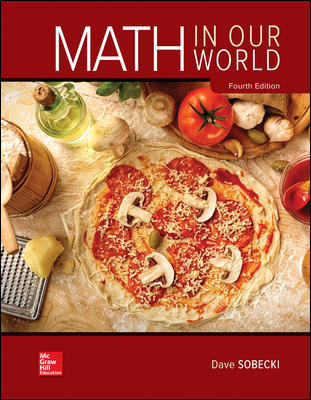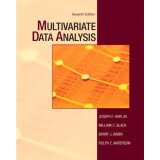Solution Manual for Math in Our World, 4th Edition, David Sobecki
$35.00 Original price was: $35.00.$26.50Current price is: $26.50.
Solution Manual for Math in Our World, 4th Edition, David Sobecki,
This is completed downloadable of Solution Manual for Math in Our World, 4th Edition, David Sobecki

Product Details:
- ISBN-10 : 125996969X
- ISBN-13 : 978-1259969690
- Author: David Sobecki
Table of Contents
Chapter 1: Problem Solving
1-1 The Nature of Mathematical Reasoning
1-2 Estimation and Interpreting Graphs
1-3 Problem Solving Strategies
Chapter 1 Summary
Chapter 2: Sets
2-1 Introduction to Set Theory
2-2 Subsets and Set Operations
2-3 Using Venn Diagrams to Study Set Operations
2-4 Using Sets to Solve Problems
2-5 Infinite Sets
Chapter 2 Summary
Chapter 3: Logic
3-1 Statements and Quantifiers
3-2 Truth Tables
3-3 Types of Statements
3-4 Logical Arguments
3-5 Euler Circles
Chapter 3 Summary
Chapter 4: Numeration Systems
4-1 Early and Modern Numeration Systems
4-2 Tools and Algorithms in Arithmetic
4-3 Base Number Systems
4-4 Operations in Base Number Systems
Chapter 4 Summary
Chapter 5: The Real Number System
5-1 The Natural Numbers
5-2 The Integers
5-3 The Rational Numbers
5-4 The Irrational Numbers
5-5 The Real Numbers
5-6 Exponents and Scientific Notation
5-7 Arithmetic and Geometric Sequences
Chapter 5 Summary
Chapter 6: Topics in Algebra
6-1 Applications of Linear Equations
6-2 Ratio, Proportion, and Variation
6-3 The Rectangular Coordinate System and Linear Equations in Two Variables
6-4 Functions
6-5 Quadratic, Exponential, and Logarithmic Functions
Chapter 6 Summary
Chapter 7: Consumer Mathematics
7-1 Percents
7-2 Personal Budgeting
7-3 Simple Interest
7-4 Compound Interest
7-5 Installment Buying
7-6 Student Loans and Home Buying
7-7 Investing in Stocks and Bonds
Chapter 7 Summary
Chapter 8: Measurement
8-1 Measures of Length: Converting Units and the Metric System
8-2 Measures of Area, Volume, and Capacity
8-3 Measures of Weight and Temperature
Chapter 8 Summary
Chapter 9: Geometry
9-1 Points, Lines, Planes and Angles
9-2 Triangles
9-3 Polygons and Perimeter
9-4 Areas of Polygons and Circles
9-5 Volume and Surface Area
9-6 Right Triangle Trigonometry
9-7 A Brief Survey of Non-Euclidean and Other Geometries
Chapter 9 Summary
Chapter 10: Probability and Counting Techniques
10-1 The Fundamental Counting Principle and Permutations
10-2 Combinations
10-3 Basic Concepts of Probability
10-4 Tree Diagrams, Tables, and Sample Spaces
10-5 Probability Using Permutations and Combinations
10-6 Odds and Expectation
10-7 The Addition Rules for Probability
10-8 The Multiplication Rules and Conditional Probability
10-9 The Binomial Distribution
Chapter 10 Summary
Chapter 11: Statistics
11-1 Gathering and Organizing Data
11-2 Picturing Data
11-3 Measures of Average
11-4 Measures of Variation
11-5 Measures of Position
11-6 The Normal Distribution
11-7 Applications of the Normal Distribution
11-8 Correlation and Regression Analysis
Supplement: Misuses of Statistics
Chapter 11 Summary
Chapter 12: Voting Methods
12-1 Preference Tables and the Plurality Method
12-2 The Borda Count Method and the Plurality-with-Elimination Method
12-3 The Pairwise Comparison Method and Approval Voting
12-4 Apportionment
12-5 Apportionment Flaws
Chapter 12 Summary
Chapter 13: Graph Theory
13-1 Basic Concepts of Graph Theory
13-2 Euler’s Theorem
13-3 Hamilton Paths and Circuits
13-4 Trees
Chapter 13 Summary
Chapter 14-Available online: Other Mathematical Systems
14-1 Mathematical Systems and Groups
14-2 Clock Arithmetic
14-3 Modular Systems
Chapter 14 Summary
Appendix A: Area Under the Standard Normal Distribution
Appendix B-Available Online: Using the TI-84 Plus Graphing Calculator
Selected Answers
Photo Credits
Index
People Also Search:
math in our world
math in our world 4th edition
math in our world 4th edition david sobecki
math in our world 4th edition david sobecki download scribd
math in our world 4th edition david sobecki solution manual download pdf
Related products
Solution Manual
International Accounting Doupnik 4th Edition Solutions Manual
Solution Manual
Solution Manual
International Business Competing in the Global Marketplace Hill 10th Edition Solutions Manual
Solution Manual
Solution Manual for Absolute C++, 5/E 5th Edition Walter Savitch
Solution Manual
Solution Manual for Introduction to Electrodynamics, 4/E 4th
Solution Manual











